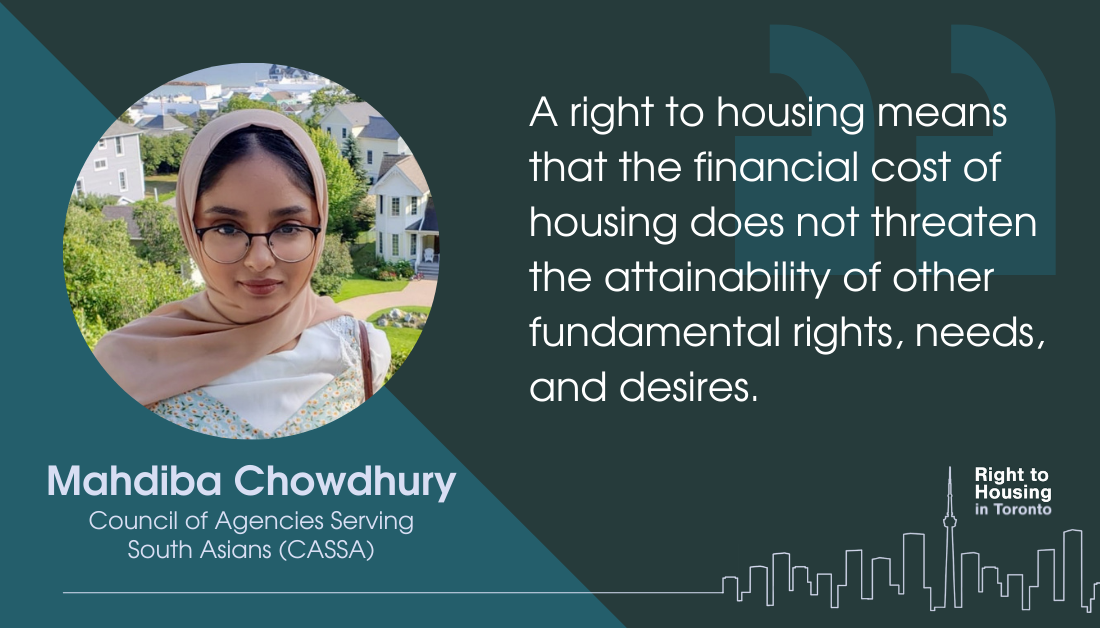
What does the right to housing mean to you?
Every generation seems to have stories of trying to overcome the struggles in making a first home purchase. But young Canadian adults like myself are shouldering a particularly heavy burden from the skyrocketing house prices and tighter regulations. The reality is that young adults are having to stay in school longer for better paying jobs and pay off higher student loan debts, only to have their full-time earnings fall flat relative to the rising inflation. As a result, the housing crisis is causing young adults to put off important milestones such as moving out of their parents’ homes, living in their own homes, and starting their own families. Therefore, a right to housing means that the financial cost of housing does not threaten the attainability of other fundamental rights, needs, and desires.
What is the #1 thing that Toronto City Council must do to advance the right to housing next year?
Prior to the pandemic, full-time earnings were not in line with rising inflation. But when COVID-19 hit, many young adults fell to the bottom of the financial ladder and were facing immediate threats to housing security. The City must work with politicians and policymakers to protect the security of tenure and prevent eviction by providing financial support and preventing accumulated debts. In particular, Toronto’s Rent Bank program should focus on broadening the eligibility criteria for tenants who don’t currently qualify and expanding funds as grants and not loans. Ultimately, if politicians and policymakers are not willing to adjust or assist with housing prices to ensure they are in line with what people earn, housing dreams will continue to be out of reach for young adults.
